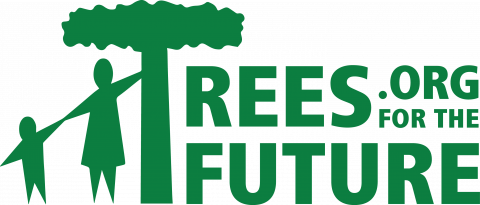
UNITAR Online Catalogue
Diversifying Nutrition and Income Sources

Cross-fertilizing Knowledge
Background
The Forest Garden Training Program is designed to give international development practitioners working in agriculture, livelihoods and health sectors an easily deployable and replicable solution to end hunger, poverty and deforestation. This flexible farmer extension training and empowerment methodology enables trainers to guide communities, cooperatives and farmer groups through a step-by-step process that helps them to protect, diversify and optimize their land. Through the four years of training, farmers learn to increase their incomes and adapting to the effects of climate change. Farms are the basic building blocks of most landscapes. By bringing them into sustainability we can have a tremendous impact on people and the planet.
Additional reading will be necessary to pass the certification exam which is taken independently after the completion of the three preparation workshops. The workshop series will combine small group work, simulations, experiential activities, mini-lectures and hands-on activities – yes, we will get our hands dirty!
Event Objectives
Learning to implement the Forest Garden Approach will enable you to:
- Help smallholder farmers protect their farms from climate change, stabilize and improve their soils, and minimize pest infestation.
- Increase household and community food security by helping smallholder farmers diversify agricultural production with market gardens and fruit tree portfolios that meet households’ priority subsistence needs and market opportunities.
- Train farmers to use management, conservation, and climate-smart agriculture techniques that optimize the long-term health and productivity of their farms.
Learning Objectives
To familiarize UN officers and participants from the UN NGO community with the Forest Garden Approach so they can learn to use and apply it in their own initiatives to meet multiple SDGs (Goals 1, 2, 3, 8, 10, 12, 13, and 15).
To enable UN officers, UN NGO community, and host country partners to achieve Forest Garden Trainer Certification and participate in a global community of certified trainers and tree planters who are planting millions of trees every year.
Content and Structure
The three-part series will occur in February, March and April, with a 1-day workshop in each of the three months. The workshops will build on each other and cover training best practices and facilitation techniques, tree seedling propagation, agroforestry design, fruit tree propagation, soil conservation techniques, perma-gardening, as well as gardening for both household food security and markets. It is highly recommended but not required to attend all three workshops.
Methodology
Through a series of fast-paced, interactive sessions, participants in this three-part training series will learn both key agroforestry techniques and training facilitation skills required to pass the Forest Garden Certification Exam. Once becoming a Certified Forest Garden Trainer, anyone, anywhere can participate in Trees for the Future’s global learning community of trainers working across the developing world.
Targeted Audience
Diplomats, project leaders, community leaders and international NGOs working with agriculture, nutrition, food security, economic growth, environment, and sustainable livelihoods are ideal participants. Participants are encouraged to take the online Forest Garden Trainer Certification exam in the weeks immediately after the third session in April. Additional reading outside of the sessions will be required to prepare for the certification exam. All new Certified Forest Garden Trainers will earn access to Trees for the Future’s global trainer app and tree planting community, and they will also be celebrated on World Environment Day, June 5th.